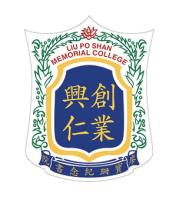| Language Policy |
With the commencement of the Third Cycle of the Fine-tuned Medium of Instruction for Secondary Schools (2022/23 to 2027/28 school years), English is adopted as the medium of instruction in most of the subjects, except for subjects including Chinese Language, Chinese History and Life and Society. Based on their language proficiency at the time of admission, the majority of students are arranged to study with English as the medium of instruction, some students are arranged to learn in Chinese as the medium of instruction. In order to create an English-rich learning environment facilitating students' authentic use of the language in communication, our native English teachers (NETs) organize a variety of theme-based activities for students outside classroom and at the English Corner on a daily basis. In addition, to improve students' language proficiency and bridge the gap between the junior and senior forms, our school adopts a "Language across the Curriculum" (LAC) approach.<br><br>Our school strives to nurture students to become "bi-literate and tri-lingual". In order to enhance students' ability in bi-literacy and tri-lingualism, different events and competitions are run in our school, for example, Chinese and English reading programmes, English Fun Fair, English Drama, Chinese and English speaking and debating contests, student exchange programmes and overseas exchange tours. |
| Learning and Teaching Strategies |
Our school conducts comprehensive annual evaluation of curriculum design and makes adjustments accordingly, allowing students to learn with joy and unleash their potential. In addition, our curriculum is tailor-made to cater for students’ learning ability. In recent years, we have been dedicated to adopting e-learning and self-directed learning in our lessons, with an inclusion of Information Technology to promote STREAM education. These learning and teaching strategies could help elevate students’ learning interest and motivation. |
| School-based curriculum |
1. Electives: 3X. Senior form students can opt for 3 electives.<br> 2. Curriculum highlights: Based on the centralized curriculum, our school-based curriculum is designed to cater for students’ learning abilities and needs. |
| Approach to Catering for Learner Diversity |
Our school endeavour to build a culture of care and gratitude through various activities organized by the Moral, Civic and National Education Committee and the Counselling & Guidance Committee. To reduce learner diversity, S.1 to S.3 students are streamed according to their abilities. We offer gifted education programmes to the high-achievers and remedial classes to the weaker students. Our school also makes flexible use of the learning grants to recruit tutors to render learning support to weaker students in small tutorial groups after school or on Saturdays. Small class teaching is adopted in senior forms to enhance teaching and learning effectiveness. |
| Approach to Integrated Education |
We adopt a ‘whole school approach’ to implement integrated education in our school. In this regard, we have set up the Student Development Team (made up of the Vice-Principal, the Career Mistress, the ECA Master, the Moral, Civic and National Education Mistress, the Counselling Mistress, the Discipline Master and Mistress, the Special Educational Needs Coordinator, the School Social Workers, etc.) to provide holistic support to student development and to enroll teachers in integrated education-related courses to enhance their professional competence. We also make flexible use of our ‘Learning Support Grant’ and other school resources to render diversified support services to students. For example, we employ a teaching assistant to provide appropriate support to students and contract out speech therapy services to help students in need. Moreover, we adapt tests and exams to cater for learner diversity and to improve the learning outcomes of students with special educational needs. We also work closely with our school educational psychologist in conducting regular individual meetings and student assessments. Parents are invited to these meetings to work out together individual education plans for students and to evaluate their effectiveness on a regular basis so that they can acquire skills of caring for and guiding their children successfully. |
| Education Support for Non-Chinese Speaking (NCS) Students |
|
| Home-School Co-operation |
The Parent-Teacher Association (PTA) acts as a bridge between parents and the school by jointly organising activities such as workshops and seminars. The PTA sponsors our students for activities and scholarships every year to provide them with better learning experiences. |
| School Ethos |
Our students are self-disciplined and self-loving. Our teachers devote themselves to their teaching and students’ development in all aspects. It is our teachers’ mission that we provide students with support and guidance. |
| School Development Plan |
School major concerns in the current academic year:<br>1. Optimize e-Learning to facilitate students’ adaptation to the e-generation.<br>2. Promote STREAM education and enrich students’ life-wide learning experiences.<br>3. Enhance the culture of appreciation and gratitude among students and advance their positive thinking.<br>4. Help students develop their strengths and learn to contribute to society.<br>5. Strengthen students’ resilience and help them meet the challenges ahead. |
| Teacher Professional Training and Development |
Our school strives to facilitate teachers’ professional development which includes the acquisition of pedagogical knowledge and skills. Our principal and many of our teachers have been invited to share professional experiences in public. |
| Life-wide Learning |
1. Inter-house activities: Our students are divided into 4 houses. House committees are formed by students and inter-house activities are organized by committee members of each house.<br>2. Academic activities: Academic societies are formed for different subjects. Students can participate in learning activities such as visits and field trips.<br>3. Service and uniform groups: Students are encouraged to join Scout Association of Hong Kong, St. John Ambulance Brigade and Community Youth Club (CYC) to make positive contributions to society.<br>4. There are about 70 extra-curricular clubs and interest groups at our school. They help nurture students’ all-round development and assist them in developing their potential and leadership skills. |
